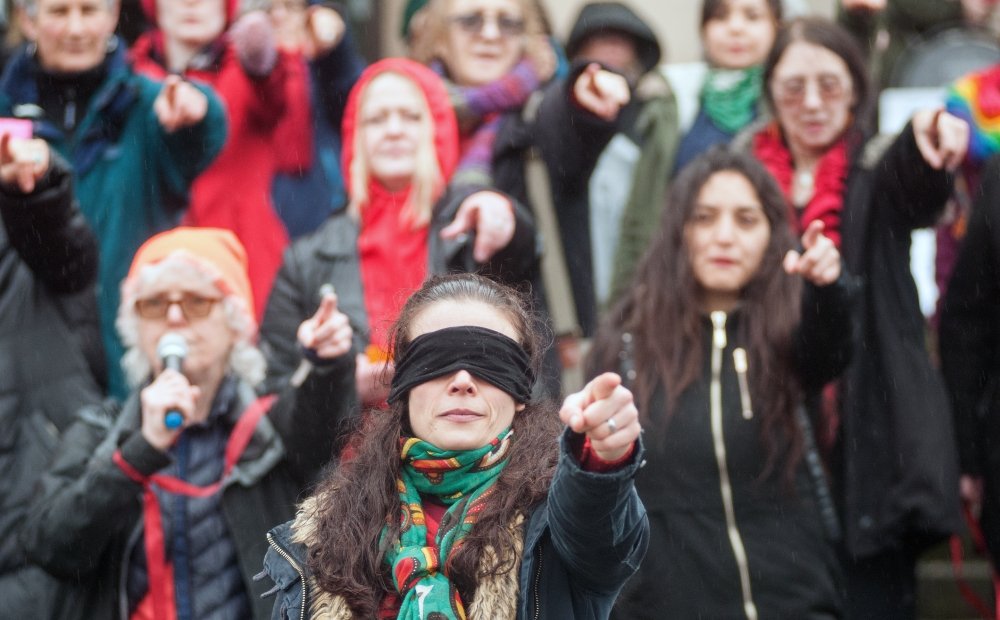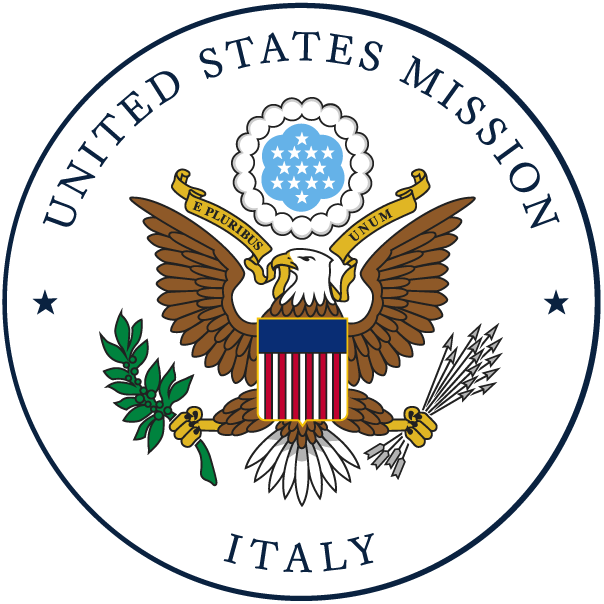Countering Domestic Violence: A Talk with Leslie Morgan Steiner

The U.S. Embassy Rome and the Wilson Center hosted an inspirational talk with activist Leslie Morgan Steiner as part of the Embassy’s Transatlantic Thursday series, which focused on Countering Domestic Violence during the 16 days of Activism Against Gender-based Violence 2020. Steiner is an author, consultant and thought leader on women’s leadership, inspirational parenting, overcoming adversity and surviving violence against women. She is the author of the book, Crazy Love, about her marriage to an abusive man. Steiner corrects common misconceptions about victims of domestic violence, and explains how we can all help break the silence.
The program also featured presentations by Di.Re in Rome and the Woodrow Wilson Center in Washington DC.
A recording of the event is available below.
The program was livestreamed in Italian and English.
The English video is available above and on U.S. Embassy Rome’s Facebook page (https://www.facebook.com/AmbasciataUSA/).
The Italian version is available on the Embassy's YouTube channel (https://www.youtube.com/user/AmbasciataUSA).
Speaker Quotes
Leslie Morgan Steiner
“The way that we end abuse against women, the way we end any kind of abuse, is just by talking about it, and learning about it […]. I am not ashamed in any way about what happened to me. I am proud to be a survivor of abuse. And also, in a way, I’m proud to claim the title of victim. Because I was a victim, and it wasn’t my fault.”
“I also want to speak briefly about emotional abuse, because what happened to me—having loaded guns held to my head—is very dramatic and terrifying. But emotional abuse, where someone uses your love and your trust to just break you down psychologically, is just as damaging as physical abuse. It’s much more common, and it is just as destructive. And we all need to be aware of that.”
“I was very fortunate […] that the key people in my life knew enough about the complex dynamics of abuse to understand what I was going through.”
“Abuse is about power and control, and trying to dominate someone else.”
“People will think that a family member, or somebody at work, or a neighbor might be being abused. And how can you possible talk to somebody? There are so many social pressures to not talk to somebody. You know, the idea that what happens behind closed doors should stay there, that you shouldn’t interfere in a family’s business, etc. And also, we victims are very good at pushing people away, because we don’t want help in some ways. We’re very difficult to help. So I find that the best approach is to just tell somebody the truth in a very kind way, and just say ‘hey, I’ve noticed something has changed. You seem different, you seem scared. You seem unhappy. And I don’t know what’s going on with you but I just need you to know that I care about you, and I am here to help you if you ever need help.’ That’s all you need to say. It’s the best thing that you can say. They will know what you are talking about, and they will know from then on that they can turn to you for help. And it might take them weeks or months or years for them to come back to you for help, but I promise you, they will know that they are not alone and that is what makes the biggest difference.”
Olivia Soledad
“Latin America has long grappled with social norms that have emphasized traditional gender roles that pin women as inferior. These norms largely treat domestic violence as a private matter that should not be spoken about outside the home, effectively normalizing domestic.”
"The COVID-19 has upended our lives in more ways than we could have anticipated. A shadow pandemic has even emerged, one marked by increased gender based violence, including domestic abuse. Lockdowns and stay at home orders have meant that many suffering domestic abuse have fewer avenues for seeking help and safety, with many being stuck at home with their abuser."
Speaker

Introduction

Moderator

Hosted By

Latin America Program
The Wilson Center’s prestigious Latin America Program provides non-partisan expertise to a broad community of decision makers in the United States and Latin America on critical policy issues facing the Hemisphere. The Program provides insightful and actionable research for policymakers, private sector leaders, journalists, and public intellectuals in the United States and Latin America. To bridge the gap between scholarship and policy action, it fosters new inquiry, sponsors high-level public and private meetings among multiple stakeholders, and explores policy options to improve outcomes for citizens throughout the Americas. Drawing on the Wilson Center’s strength as the nation’s key non-partisan policy forum, the Program serves as a trusted source of analysis and a vital point of contact between the worlds of scholarship and action. Read more


Mexico Institute
The Mexico Institute seeks to improve understanding, communication, and cooperation between Mexico and the United States by promoting original research, encouraging public discussion, and proposing policy options for enhancing the bilateral relationship. A binational Advisory Board, chaired by Luis Téllez and Earl Anthony Wayne, oversees the work of the Mexico Institute. Read more



